
The Doolittle Raid was an audacious bombing attack against Tokyo on 18 April 1942, as American carrier-based aircraft struck the Japanese capital city. The raid was conducted by 16 North American B-25 Mitchell medium bombers of the US Army Air Forces (USAAF), flying from the deck of the aircraft carrier USS Hornet. This audacious mission was conceived, planned and executed within five months of the 7 December 1941 attack on Pearl Harbor. The bombing of US military installations had plunged the previously neutral nation into World War II.
The Doolittle Raid was undertaken in response to the string of Japanese victories during the early months of World War II in the Pacific. Following Pearl Harbor, the Japanese had seized Wake Island, Guam and the Dutch East Indies. Japanese forces were surging across the Philippines and advancing on all fronts. The Doolittle Raid, though risky, was intended to bolster American morale and to strike a surprising blow against the Japanese, who considered their island nation unassailable by enemy forces.
President Franklin D. Roosevelt expressed his personal interest in bombing Japan early in the Pacific War; however, the distance involved in crossing the expanse of the Pacific Ocean and the risk to precious US military assets made the prospects for such an attack seem remote. Nevertheless, Captain Francis S Low, commander-in-chief of the US Navy, proposed that USAAF bombers, which possessed greater range than naval aircraft, might be launched from the deck of an American aircraft carrier sailing within striking distance of the Japanese home islands.
Planning the raid
Denne historien er fra Issue 106, 2022-utgaven av History of War.
Start din 7-dagers gratis prøveperiode på Magzter GOLD for å få tilgang til tusenvis av utvalgte premiumhistorier og 9000+ magasiner og aviser.
Allerede abonnent ? Logg på
Denne historien er fra Issue 106, 2022-utgaven av History of War.
Start din 7-dagers gratis prøveperiode på Magzter GOLD for å få tilgang til tusenvis av utvalgte premiumhistorier og 9000+ magasiner og aviser.
Allerede abonnent? Logg på
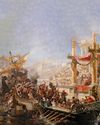
NAUMACHIA TRUTH BEHIND ROME'S GLADIATOR SEA BATTLES
In their quest for evermore novel and bloody entertainment, the Romans staged enormous naval fights on artificial lakes
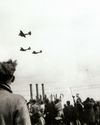
OPERATION MANNA
In late April 1945, millions of Dutch civilians were starving as Nazi retribution for the failed Operation Market Garden cut off supplies. eet as In response, Allied bombers launched a risky mission to air-drop food
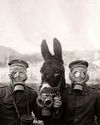
GASSING HITLER
Just a month before the end of WWI, the future Fuhrer was blinded by a British shell and invalided away from the frontline. Over a century later, has the artillery brigade that launched the fateful attack finally been identified?
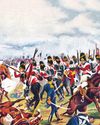
SALAMANCA
After years of largely defensive campaigning, Lieutenant General Arthur Wellesley went on the offensive against a French invasion of Andalusia
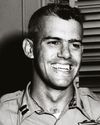
HUMBERT 'ROCKY'VERSACE
Early in the Vietnam War, a dedicated US Special Forces officer defied his merciless Viet Cong captors and inspired his fellow POWs to survive
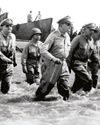
LEYTE 1944 SINKING THE RISING SUN
One of the more difficult island campaigns in WWII's Pacific Theatre saw a brutal months-long fight that exhausted Japan’s military strength
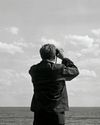
MAD DAWN
How technology transformed strategic thinking and military doctrine from the Cold War to the current day
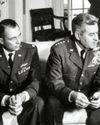
BRUSHES WITH ARMAGEDDON
Humanity came close to self-annihilation with the Cuban Missile Crisis, Broken Arrows’ and other nuclear near misses
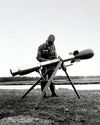
THE DEADLY RACE
How the road to peace led to an arms contest between the USA and USSR, with prototypes, proliferation and the world’s biggest bomb
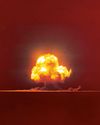
THE MANHATTAN PROJECT
Einstein, Oppenheimer and the race to beat Hitler to the bomb. How a science project in the desert helped win a war